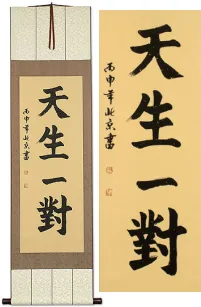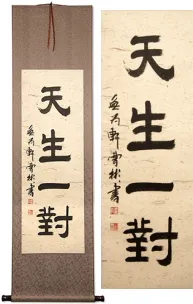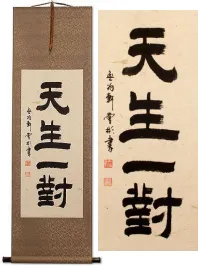Buy a Custom Best friends Chinese or Japanese Calligraphy Wall Scroll
We have many options to create artwork with the Chinese characters / Asian symbols / Japanese Kanji for Best friends on a wall scroll or portrait.
This in-stock artwork might be what you are looking for, and ships right away...
Gallery Price: $200.00
Your Price: $90.88






